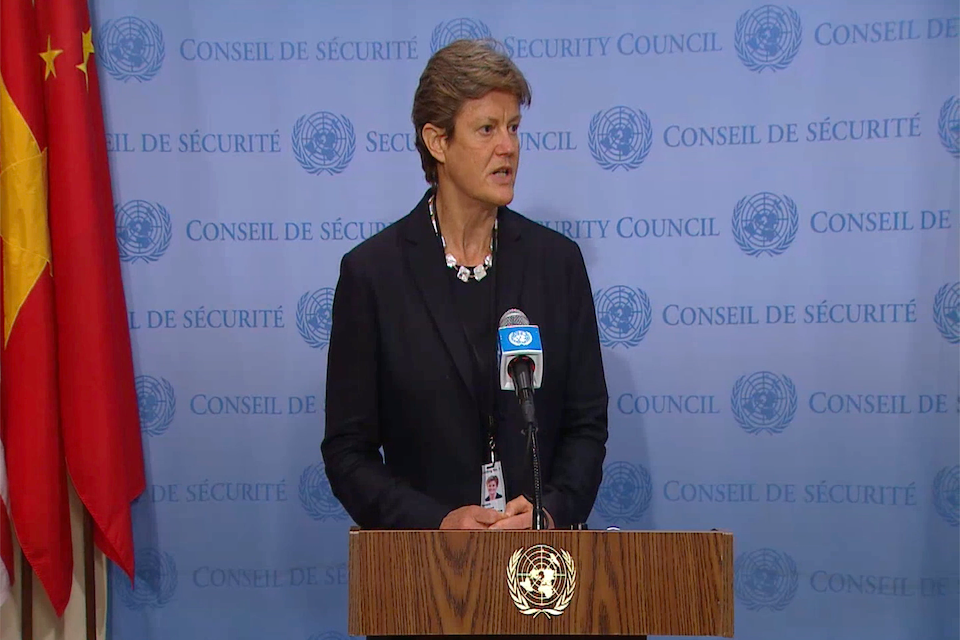We continue to insist on Syria’s full cooperation with OPCW
Statement by Ambassador Barbara Woodward, UK Permanent Representative to the UN, at the Security Council briefing on Syria Chemical Weapons

I thank Director-General Arias and Ms Nakamitsu for their briefing today. This is the third time the Director-General has briefed the Security Council in the last two years. This underlines the Council’s enduring concern at the use of these banned weapons and also the importance the Director-General places on dialogue and collaboration between the Council and the OPCW.
We thank the Director-General for the work of the various teams of the Technical Secretariat set out in his monthly reports to the Council. Despite the challenges posed by the pandemic and the intense scrutiny under which the Technical Secretariat operates, it is clear that the OPCW continues to implement the duties conferred on it objectively and professionally, and to prioritise dialogue, cooperation, discretion and candour with the Syrian authorities and OPCW States Parties.
The UK’s position on this issue is well-known and I’d like to underline three points:
First, we remain deeply concerned by the unresolved issues in Syria’s initial chemical weapons declaration, which now stands at 20. Coupled with the independent findings of the UN and the OPCW, which, with the latest IIT report, have now attributed eight chemical weapons attacks to the Syrian regime, it is clear that Syria retained a chemical weapons capability and the willingness to use it after 2013.
Second, the retention of this capability means there is an ongoing risk of further use of chemical weapons. Given the unaccounted for whereabouts of significant amounts of chemical agents and munitions, there is also the potential for those weapons to fall into the hands of other groups with an intent to use them.
Third, and for this reason, we will continue to insist on Syria’s full cooperation with the OPCW in accordance with resolution 2118, and on the full and verified destruction of Syria’s chemical weapons programme, so that the ongoing threat to international peace and security can be neutralised to the satisfaction of the international community.
I’d like to take advantage of the Director-General’s presence to ask two questions, if I may.
First, UNSCR 2118 requires Syria to “cooperate fully”. How do you assess the cooperation of the Syrian Arab Republic? After seven years of work and 20 unresolved issues in Syria’s Declaration, what are the next steps and what more is required to start to reduce the number of issues and move towards a resolution?
Second, with regard to the methodology of the Investigation and Identification Team, could you set out the starting point of the investigation as well as how the team gathers evidence and conducts the investigation? Does it simply accept the Fact-Finding Mission’s findings or does it re-interrogate them?
Thank you Mr President.